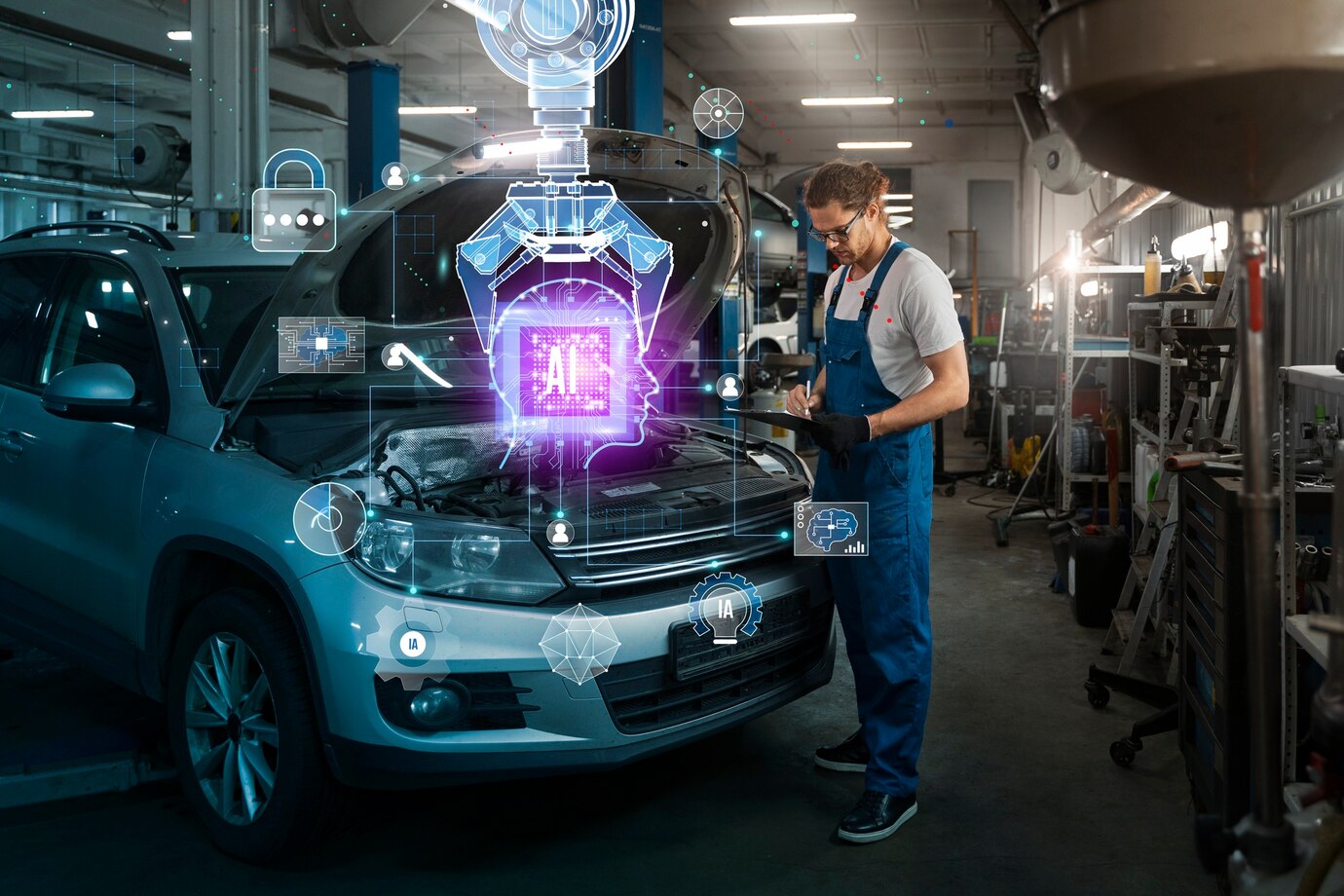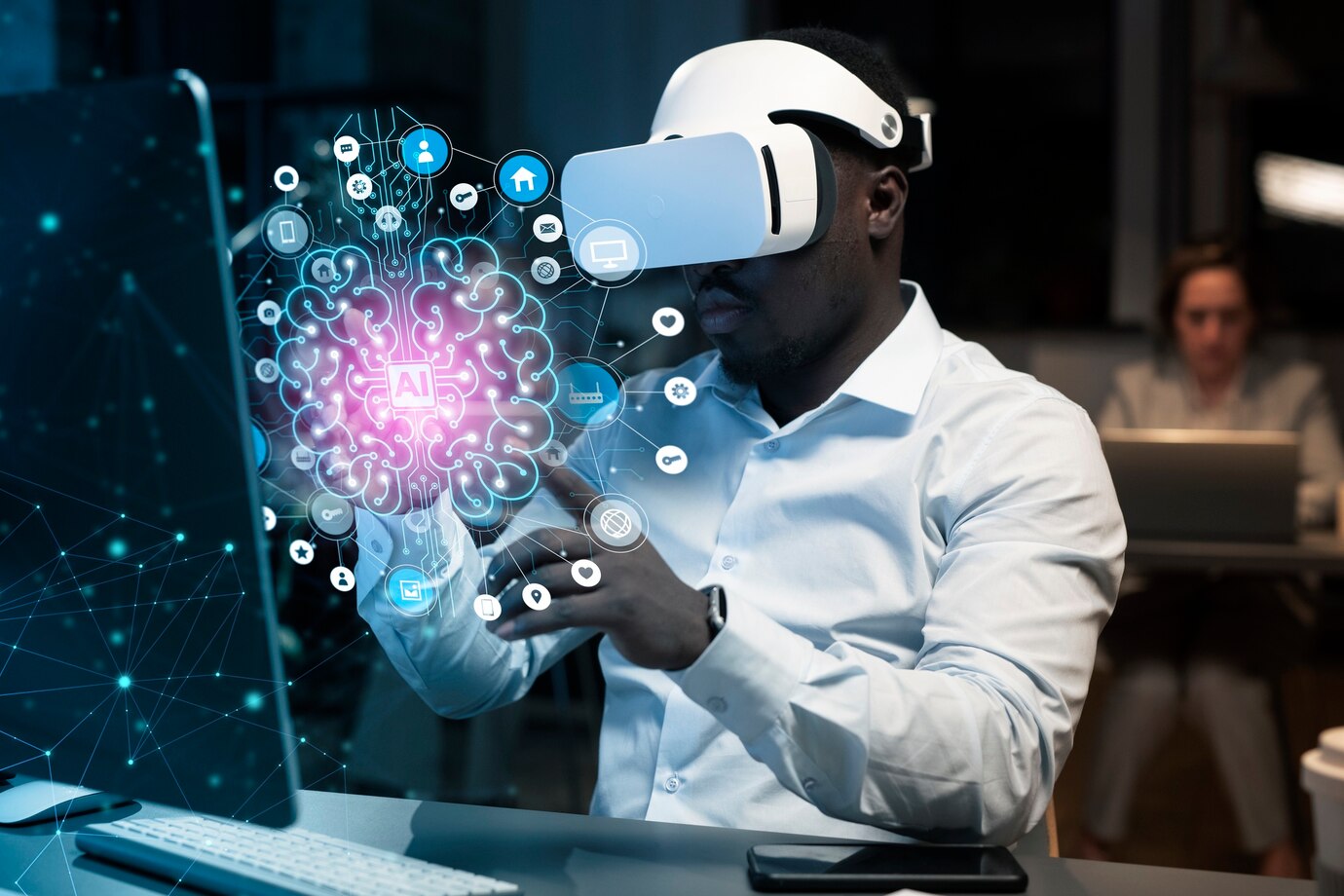
Artificial Intelligence in Business
Artificial Intelligence (AI) has not only emerged as a buzzword but as a transformative force that is reshaping the very essence of how businesses operate. Let’s delve deeper into the multifaceted impact of AI, exploring its applications, potential challenges, and the exciting future it promises.
Understanding AI’s Impact
Beyond the realm of automating routine tasks, AI has become a catalyst for efficiency and innovation. Its adaptability to various business domains is evident in the seamless integration into operations. AI-driven solutions are not just tools; they represent a fundamental shift in how organizations approach problem-solving.
Applications of AI in Business
- Automated Processes: AI’s ability to automate mundane tasks allows employees to focus on strategic and creative aspects, driving overall productivity.
- Data Analysis and Insights: The data explosion in the digital age is met with AI’s prowess in analyzing vast datasets. This enables businesses to extract valuable insights and make informed decisions.
- Customer Experience Enhancement: AI-powered chatbots and virtual assistants are providing a personalized touch to customer interactions. This not only improves customer satisfaction but also ensures round-the-clock support.
- Predictive Analytics: AI’s predictive capabilities empower businesses to foresee trends, identify potential risks, and proactively respond to market shifts.
Future Prospects
Looking ahead, the future of AI in business is brimming with possibilities. As AI technologies continue to evolve, businesses can anticipate more sophisticated applications, from advanced decision support systems to innovative ways of leveraging AI for market advantage. The integration of AI in shaping business strategies will be pivotal.

Challenges and Considerations
The transformative power of AI comes with its own set of challenges. Ethical considerations, data security, and the need for upskilling the workforce are crucial aspects that businesses must navigate. Striking a balance between embracing technological advancements and addressing ethical concerns is vital for the sustainable integration of AI.
AI and Human Collaboration
One of the misconceptions about AI is that it’s here to replace human jobs. On the contrary, AI serves as a powerful ally, augmenting human capabilities. The collaboration between AI and human intelligence can unlock unprecedented levels of creativity, problem-solving, and strategic thinking. Businesses that embrace this synergy position themselves for unparalleled success.
Vertical-Specific AI Applications
The impact of AI is not uniform across industries. In healthcare, AI is revolutionizing diagnostics and treatment plans. In finance, it’s optimizing fraud detection and risk management. Tailoring AI applications to specific industry needs ensures a more targeted and effective implementation, maximizing benefits.
AI for Sustainable Practices
Beyond operational efficiency, AI can contribute significantly to sustainable business practices. From optimizing energy consumption to reducing waste in manufacturing processes, AI-driven solutions align with the global push for environmental responsibility. This dual benefit of efficiency and sustainability positions AI as a cornerstone for the businesses of the future.
Conclusion
In conclusion, the rising role of artificial intelligence in business is not merely a trend but a trajectory toward a new era of possibilities. Those who recognize the potential and embrace AI will be at the forefront of innovation and competitiveness. As businesses continue to adapt, AI will play an increasingly integral role in defining the future landscape of industries worldwide.
The journey with AI is dynamic, and the business landscape will continue to evolve with technological advancements. The key lies in not just adopting AI but in harnessing its potential to create value, drive innovation, and ensure a sustainable and prosperous future for businesses.



